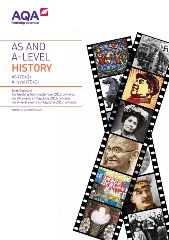1J The British Empire, c1857–1967
This option allows students to study in breadth issues of change, continuity, cause and consequence in this period through the following key questions:
- Why did the British Empire grow and contract?
- What influenced imperial policy?
- What part did economic factors play in the development of the British Empire?
- How did the Empire influence British attitudes and culture?
- How did the indigenous peoples respond to British rule?
- How important was the role of key individuals and groups and how were they affected by developments?
Part one: the High Water Mark of the British Empire, c1857–1914
The development of Imperialism, c1857–c1890
- The expansion of the British Empire in Africa; the Suez Canal and Egypt
- Imperial and colonial policy; India’s administration and defence; international relations, colonial policy and the scramble for Africa; informal empire
- Trade and commerce; the chartered companies
- The role and influence on attitudes to empire of explorers, missionaries, traders, colonial administrators
- Attitudes towards imperialism in Britain; the development of party political conflicts
- Relations with indigenous peoples; the Indian Mutiny and its impact; relations with Boers and Bantu peoples in southern Africa
Imperial consolidation and Liberal rule, c1890–1914
- The consolidation and expansion of the British Empire in Africa
- Imperial and colonial policy; the administration of India and Egypt; ‘native policy’; international relations and colonial policy
- Trade and commerce
- The role and influence on attitudes to empire of: Joseph Chamberlain; Cecil Rhodes; colonial administration
- Imperialism: supporters and critics; National Efficiency; the British Empire and popular culture; representations of empire
- Relations with indigenous peoples; challenges to British rule; the Sudan; the causes and consequences of the Boer War
Part two: Imperial retreat, 1914–1967 (A-level only)
Imperialism challenged, 1914–1947 (A-level only)
- Expansion and contraction of empire: the impact of the First and Second World Wars; the Mandates; withdrawal from India and the Middle East
- Colonial policy and administration in India, Africa and the Middle East; relations with the Dominions; the Statute of Westminster; imperial defence
- The development of trade and commerce; the economic impact of war
- The role and influence on attitudes to empire of: Gandhi, colonial administration
- Imperialist ideals; popular culture; representations of empire
- Relations with indigenous peoples; protest and conflict; colonial identity; the development of nationalist movements
The winds of change, 1947–1967 (A-level only)
- Decolonisation in Africa and Asia
- British colonial policy and administration; the Suez Crisis and its impact; international relations; the Commonwealth
- Trade and commerce; post-war reconstruction
- The role and influence on attitudes to empire of: nationalist leaders, colonial administration
- Post-colonial political, economic and cultural ties; migration; the residual impact of empire; popular culture
- Relations with indigenous peoples; challenges to colonial rule in Africa and Asia; Mau Mau; the growth of nationalist movements and reactions to them; Rhodesia
